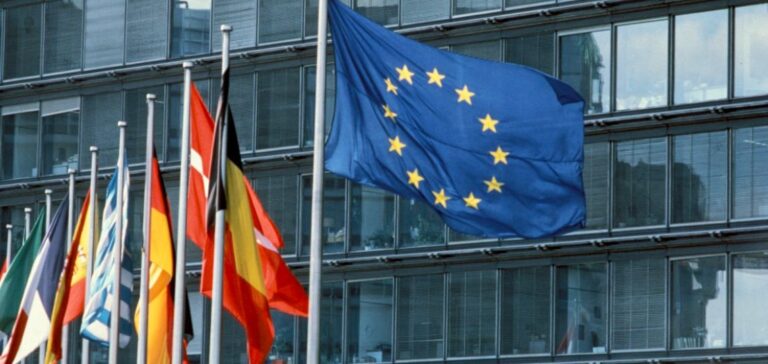A tightening of European sanctions against Moscow is expected. In fact, the EU is responding to the escalation in the war in Ukraine.
Thus, the EU is considering a cap on the price of oil and strengthening sanctions on individuals. In addition, the Union is considering further restrictions on high-tech exports to Russia.
New European sanctions
Vladimir Putin’s nuclear rhetoric is pushing the EU to react. Thus, the foreign ministers of 27 countries are planning new sanctions against Moscow. These European sanctions would be a series of “economic and individual” measures.
Ursula von der Leyen adds:
“[Les sanctions européennes incluraient] additional export controls on civilian technology.”
Among these measures, the question of a cap on the price of oil is making a comeback. Thus, the EU is considering aligning itself with the G7.
Penalties for individuals
In Brussels, a European diplomat adds:
“We also fully expect more individual listings.”
In fact, European sanctions could, according to some sources, affect individuals. The same sources mention a list drawn up by Alexei Navalny. It includes 6,676 people described by A. Navalny as “corrupters and warmongers”. Thus, this list will complement the EU blacklist. It currently comprises 108 entities and 1,206 people.
In addition, some European states want to target relatives and close associates of those already sanctioned.
In addition, the EU should recognize certain flaws. Thus, the 27 should agree to recognize circumvention of sanctions as a criminal offence within the EU.
Finally, the question of Russians fleeing from conscription must be addressed. The three Baltic States announced that they would not offer refuge to the latter. Similarly, Finland and Poland limit the arrival of Russians. However, the EU has always rejected the introduction of a blanket travel ban.
A coordinated response?
The question of European unity arises, while some states are experiencing more difficulty in turning away from Russia. In fact, the question of a cap on the price of Russian oil is accompanied by many questions.
European sanctions already provide for an embargo on Russian oil. This will take effect by the end of the year. However, there are some exemptions. This is the case, for example, in Hungary.
Another proposal is restrictions on exports of luxury goods to Russia. Some want a ban on Russian diamonds and the confiscation of Russian assets in Europe. However, others consider it highly unlikely that such a measure will be introduced.
Thus, the European Union is divided on the issue of European sanctions. Germany has always opposed tighter economic restrictions. For his part, Viktor Orban, close to V. Putin, pleads for the abolition of all European sanctions.
In short, European unity remains fragile on this issue. An EU official states:
“I don’t know how quickly we can agree on new sanctions.”
The European Commission is expected to present a written proposal next week. These new European sanctions could be approved by the 27 at their meeting in Prague. It will be held on October 6 and 7.






















